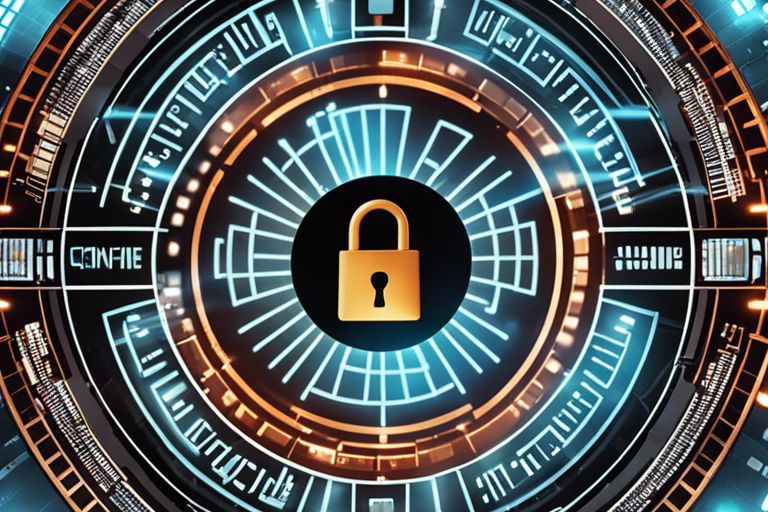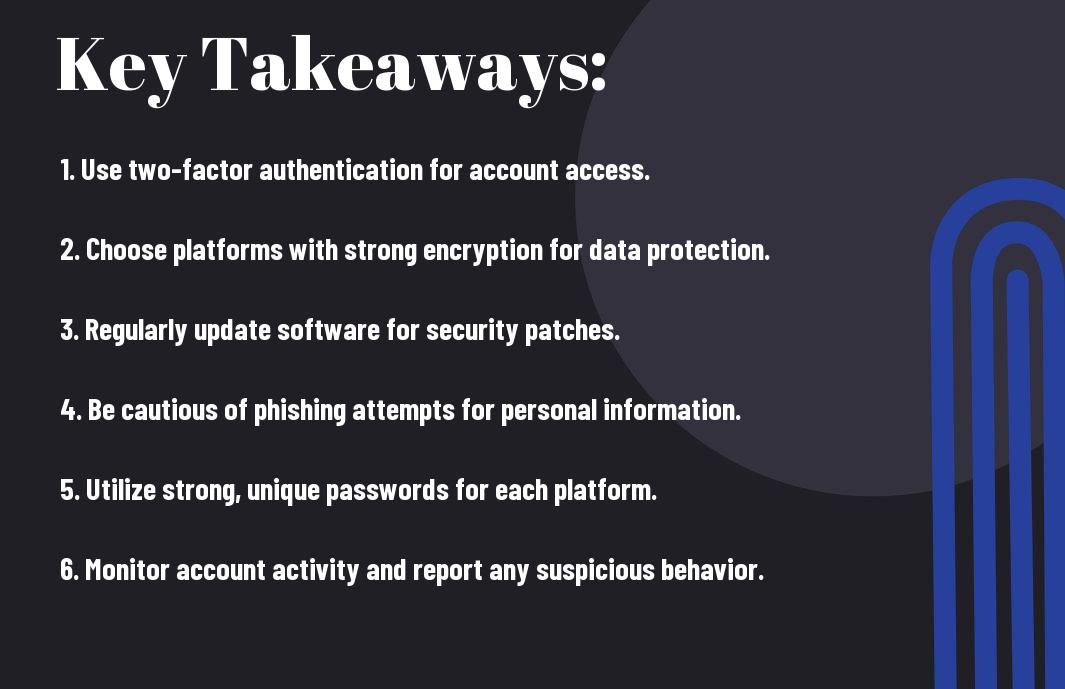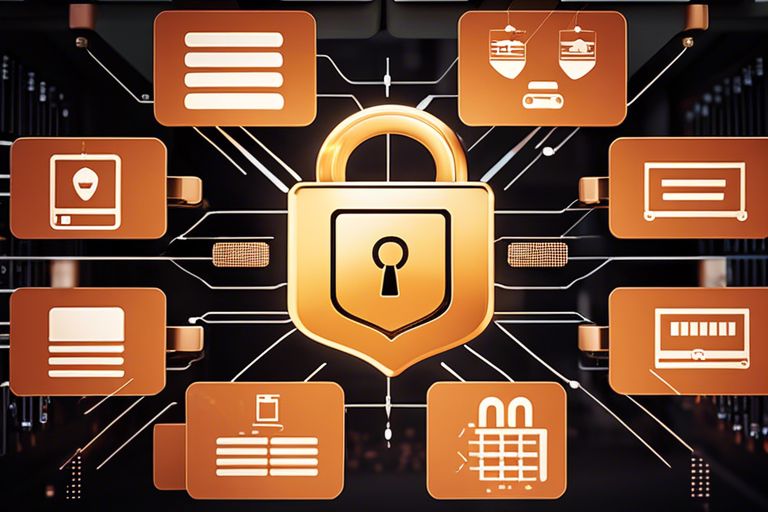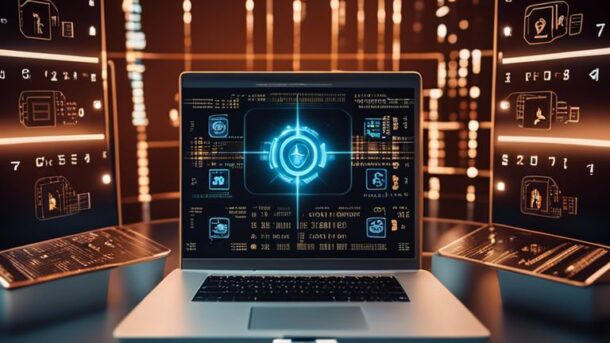There’s a world of opportunities when using market trading tools, but it’s imperative to prioritize your security. Familiarize yourself with the necessary security measures to safeguard your investments and personal data. To learn more about the latest security practices in modern trading software, check out Security Measures in Modern Day Trading Software.
Key Takeaways:
- Use secure and reputable trading platforms: Ensure the platform you use has robust security measures in place to protect your personal and financial information.
- Enable two-factor authentication: Add an extra layer of security to your trading account by using two-factor authentication, which requires a code or confirmation from a separate device.
- Monitor your accounts regularly: Keep a close eye on your trading accounts for any suspicious activity or unauthorized transactions, and report any issues immediately to your platform provider.

Identifying Risks
Cybersecurity Threats
Your use of market trading tools may expose you to various cybersecurity threats. An important risk to consider is the potential for hackers to gain unauthorized access to your trading accounts or personal information. Cybercriminals may use techniques such as phishing or malware to steal your login credentials or compromise your security.
Data Breaches
Risks of data breaches are a significant concern when using market trading tools. Your personal and financial information stored on these platforms could be at risk if there is a breach in the system’s security. This sensitive data falling into the wrong hands could lead to identity theft, financial loss, or other fraudulent activities.
With the increasing number of cyberattacks targeting financial institutions and trading platforms, it is crucial to be vigilant and implement robust security measures to protect your data and investments.

Authentication and Authorization
You must ensure secure authentication and authorization measures when using market trading tools. This is crucial to protect your investment and personal information from unauthorized access.
Two-Factor Authentication
An important security measure to consider is implementing two-factor authentication (2FA) on your trading accounts. 2FA adds an extra layer of security by requiring not only a password and username but also something that only the user has on them, i.e., a piece of information only they should know or have, such as a fingerprint or a one-time code sent to their mobile device.
Strong Password Policies
Two-factor authentication provides added security, but it is equally important to have strong password policies in place. This includes using unique passwords for each trading account, regularly updating passwords, and ensuring they are complex with a mix of letters, numbers, and special characters.
This will help prevent brute force attacks and unauthorized access to your accounts, reducing the risk of potential security breaches.

Secure Communication
For What safety measures should I consider when evaluating an exchange to trade or store my crypto assets, secure communication is crucial when using market trading tools. Encryption methods and Secure Sockets Layer (SSL) are vital components to ensure the confidentiality and integrity of your data.
Encryption Methods
On encryption methods, it is vital to use strong encryption algorithms such as AES (Advanced Encryption Standard) to protect your sensitive information. By encrypting your data, you make it unreadable to unauthorized users, adding an extra layer of security to your communication with trading platforms.
Secure Sockets Layer (SSL)
One way to enhance secure communication is by utilizing Secure Sockets Layer (SSL) technology. SSL certificates help establish a secure connection between your web browser and the trading platform, ensuring that your data is encrypted during transit. This encryption protocol is widely used to safeguard online transactions and protect sensitive information from potential eavesdroppers.
Another aspect to consider with Secure Sockets Layer (SSL) is to verify that the website you are interacting with has a valid SSL certificate. You can easily identify this by looking for the padlock icon in the browser’s address bar or checking if the URL begins with “https://”. These visual cues indicate that the connection is secure, giving you peace of mind when conducting trades or transferring funds.
Data Protection
Despite the potential risks involved in using market trading tools, it is vital to prioritize data protection. Implementing Risk Management Techniques for Active Traders is crucial to safeguard your sensitive information and financial data from any unauthorized access or cyber threats.
Secure Storage Solutions
Data security starts with how you store your sensitive trading information. Utilizing secure storage solutions such as encrypted external hard drives or password-protected cloud services can help safeguard your data against unauthorized access. It is vital to regularly back up your data and ensure that all storage solutions are updated with the latest security patches to mitigate any potential vulnerabilities.
Access Control Measures
Any access control measures you put in place are crucial in protecting your trading tools and data. Implementing strong password policies, multi-factor authentication, and limiting access to only authorized personnel can help prevent unauthorized individuals from gaining entry to your trading accounts or tools. Regularly reviewing and updating access permissions is also vital in maintaining a secure trading environment.
Storage solutions like encrypted USB drives or secure cloud storage can add an extra layer of protection to your sensitive trading data. By encrypting your data at rest and in transit, you can ensure that even if a breach occurs, your information remains secure and inaccessible to unauthorized parties.
Third-Party Integration Risks
Due Diligence on Vendors
Risks can arise when integrating third-party tools into your market trading system. It is crucial to conduct thorough due diligence on vendors before integrating their tools. Make sure you research the reputation, reliability, and security measures of the vendors you are considering. Look for reviews and feedback from other users to gauge their satisfaction and experience with the tools.
Contractual Agreements
Vendors often provide contractual agreements that outline the terms and conditions of using their tools. It is imperative to carefully review and understand these agreements before integrating any third-party tools into your trading system. Pay close attention to clauses related to data security, confidentiality, and liability. Ensure that the agreement aligns with your security requirements and that the vendor can meet your expectations.
Understanding the contractual agreements can help you mitigate risks and protect your trading system from potential vulnerabilities. If there are any ambiguities or concerns in the agreement, do not hesitate to seek clarification from the vendor or consult with legal counsel to ensure that your interests are safeguarded.
Monitoring and Incident Response
Now, when using market trading tools, it is necessary to have robust monitoring and incident response measures in place. By proactively monitoring your trading activities, you can quickly identify any unusual behavior or potential security threats.
Regular Security Audits
Any market trader should regularly conduct security audits to assess the effectiveness of their security measures. These audits can help you identify vulnerabilities in your trading tools and practices, allowing you to address them before they are exploited by malicious actors. By keeping your security measures up to date, you can better protect your assets and investments.
Emergency Response Plans
Regularly reviewing and updating your emergency response plans is crucial to effectively managing and minimizing the impact of security incidents. Ensuring that you have clear procedures in place for responding to incidents such as data breaches or unauthorized access can help you mitigate potential damages and prevent further harm to your trading activities.
Incident response plans should outline the steps you will take in the event of a security incident, including who to contact, how to contain the situation, and how to recover from the incident. By having a well-defined and rehearsed emergency response plan, you can act swiftly and decisively to protect your trading operations from potential threats.
Conclusion
Conclusively, when using market trading tools, it is crucial to prioritize security measures to protect your investments and personal information. By utilizing strong passwords, enabling two-factor authentication, and being cautious of phishing attempts, you can significantly reduce the risk of unauthorized access to your trading accounts.
Remember that staying vigilant and informed about cybersecurity best practices is vital in the digital age. Regularly updating your software, avoiding public Wi-Fi for trading activities, and monitoring your accounts for any suspicious activity are all proactive steps you can take to safeguard your financial assets. By implementing these security measures, you can trade with confidence and peace of mind.
Q: What security measures should be considered when using market trading tools?
A: When using market trading tools, it is important to consider the following security measures:
Q: How can I ensure the security of my trading account when using market trading tools?
A: To ensure the security of your trading account, make sure to use strong and unique passwords, enable two-factor authentication, regularly update your software, be cautious of phishing attempts, and use a secure internet connection when accessing your account.
Q: What steps can I take to protect my personal and financial information while using market trading tools?
A: To protect your personal and financial information, avoid sharing sensitive information online or with unknown individuals, use secure and encrypted platforms for trading, regularly monitor your accounts for any suspicious activities, and consider using a virtual private network (VPN) for added security.


